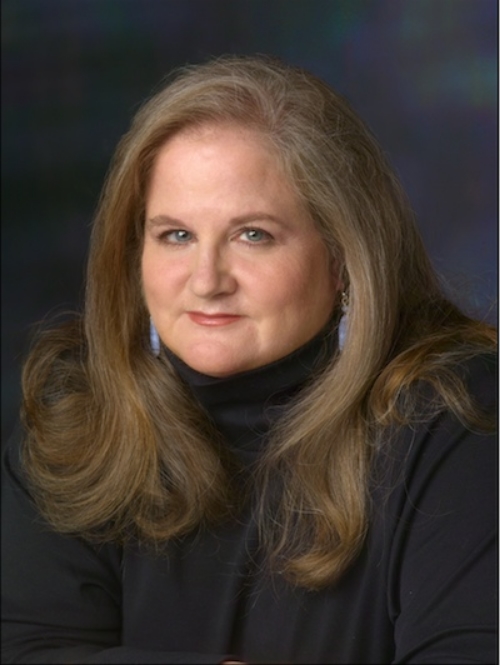What I remember most is how beautiful the day was. So beautiful that you might have been tempted to call in sick or play hooky from school. Not too warm, not too cold, a pristine blue sky.
I was working from 9:30 to 5:30 then. And when the subway stopped at Christopher Street, and stayed in the station, doors open, I worried that I would be late. So I left the subway and walked up to the street, thinking I would go over to Avenue of the Americas and take the subway there. When I came out of the station, the street was filled with people looking south. I looked too, and saw fire and black smoke pouring out of one of the World Trade Center towers.
I didn't speak to anyone. I walked over to Avenue of the Americas, discovered that no trains were running, and phoned my office. I got Joanne's voicemail and left a message telling her I would be late. I said it looked like there was a fire in one of the World Trade Center buildings and I hoped everyone was o.k.
I began walking downtown. I passed a truck with its radio on--someone was saying the United States was under attack. The whole situation seemed surreal to me.
Our offices were at 30 West Broadway then--across from World Trade Center 7, just a couple of blocks from the World Trade Center complex. I felt compelled to do whatever I had to do to get to work; I didn't want to be accused of not trying, because it was such a beautiful day. And I wasn't worried--I knew if I got close to any place that was dangerous, the NYPD would have it cordoned off.
I had made it as far as Franklin Street when I heard an explosion. I thought a bomb had gone off. I watched as one of the twin towers crumbled. Then I saw people running toward me on the street, followed by a huge cloud of dust. A voice in my head said, "It's not safe here." I turned, walked up a side street, turned again and began walking uptown.
I felt as though I was doing everything automatically. I saw and heard things without reacting. Walking up one of the small streets in the Village, I heard a man say, "My neighbor's wife works in the other tower, and he's really nervous right now." When I got to 10th Street, across from the Jefferson Market Library, I heard someone say, "There goes the other one," and watched as the other tower collapsed.
I became analytical about my route. I decided to stay on the Avenue of the Americas to avoid the Empire State Building on Fifth and Madison Square Garden on Seventh. When I got to 42nd Street, I went over to Eighth Avenue. As I walked up Eighth people were buying postcards of the World Trade Center. When I reached 59th Street, I thought I'd walk up along Central Park, because whoever was attacking us probably wouldn't bomb trees.
As I walked I thought about my cat, Damon, who had died in May. I wished that he would be there waiting for me when I got home. It occurred to me that I had nothing in my apartment that was alive--no cat, not even a plant. At some point it also occurred to me that I hadn't had breakfast and I felt guilty for wanting to eat. But I was hungry and I bought a bagel at H&H on 80th Street and Broadway.
I remember Regie Cabico called me. And Jason Schneiderman--he was calling everyone he knew, just to make sure they were alright. At some point I called my parents to let them know I was o.k.
Here is something else that I remember: reading in the New York Times that President Bush had visited Ground Zero, and one of the fire fighters, or one of the policemen, had said that he looked "scared, like a mouse." And I remember looking at a photograph of Bush, sitting next to his father at a service in the National Cathedral. Everyone around him appeared solemn, but the President had what looked like the beginnings of a smile on his face. I could almost picture a quote bubble over his head, with the words, "My approval ratings just went up."
In the last ten years, I haven't gone downtown very much. I won't go there unless I absolutely must. I don't understand why people want to visit Ground Zero. I'm appalled by people who sell, and people who buy, fake crystal souvenirs of the twin towers.
They're building another tall building--taller than the lost towers. Naturally, when a phallic symbol is destroyed, there's a lot of anxiety until it is back up again, bigger and better than ever. But I want to ask the architects and contractors and investors: do you want your wife or husband, your daughter or son, your sister or brother to work on the top floor of this building?
I thought they should make a park. A beautiful, peaceful place with lots of trees and flowers, and maybe some kind of non-denominational chapel/meditation space, with materials--building materials, artwork--donated by all of the countries of the world--a true international collaboration. Isn't it amazing that someone who had lived in New York City for 25 years could have been so naive about the realities of real estate in New York City?
The other day on the subway I noticed a face I hadn't seen in awhile--George W. Bush. It was staring out at me from an advertisement for a television interview about his 9/11 memories. I don't often feel the urge to deface advertising on public transportation, but I did then. I wanted to smear that face with blood.


